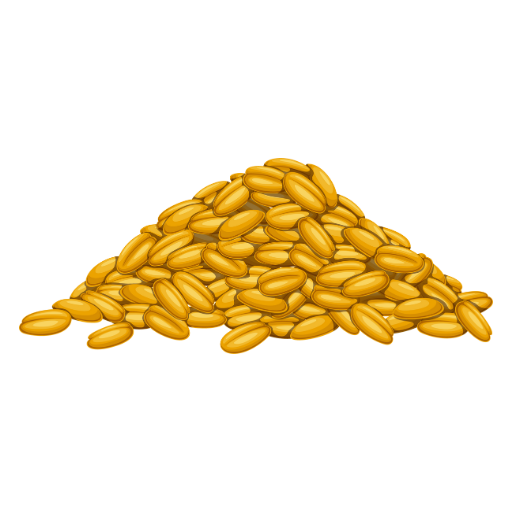Description
Wheat is the most widely cultivated cereal crop in the world, with Australia being the eighth largest producer and fourth largest exporter of wheat in the world. Wheat has come to be a firm favourite grain because of the diversity it provides in culinary applications.
Wheat Types
Many different types of wheat grain exist, with two main types being eaten in Australia, namely bread wheat (Triticum aestivum vulgare) and durum wheat (Triticum turgidum durum). The durum variety is used in the manufacture of pasta while the other type is used to produce most other wheat-based foods. Bread wheat in Australia is typically white and does not have the red colour, which typifies most bread wheat grown in the northern hemisphere.
Bread wheat is described as ‘hard’ or ‘soft’ according to its protein content. Hard wheat has more protein, including more gluten, which makes it purposeful to bake bread, while soft wheat has a much lower protein content, which when milled produces ‘cake flour’ for sweet biscuits and cakes.
Aside from bread wheat and durum, other types of wheat include spelt, emmer, einkorn and kamut. These wheat varieties are commonly referred to as ‘ancient’ grains and are increasingly being used in the manufacture of niche wheat-based food products.
- Spelt is higher in protein than common wheat and can be used in place of common wheat in most recipes. Spelt does contain gluten and should not be consumed by people who need to avoid gluten as a consequence of medically diagnosed coeliac disease.
- Emmer, otherwise known as ‘farro’ or ‘grano farro’, is staging a comeback as a gourmet ingredient, with good amounts of antioxidants.
- Einkorn is prized for having a high protein content and the highest level of lutein among wheat species.
- Kamut is an heirloom grain originating from Egypt which is higher in protein and contains more vitamin E than common wheat.
Benifits
- Rich in fiber for digestive health.
- Good source of essential nutrients.
- May reduce risk of chronic diseases.
- Supports weight management when whole grain.
- Boosts heart health with lower cholesterol.
- Provides sustained energy and fullness.
- Promotes healthy blood sugar levels.

